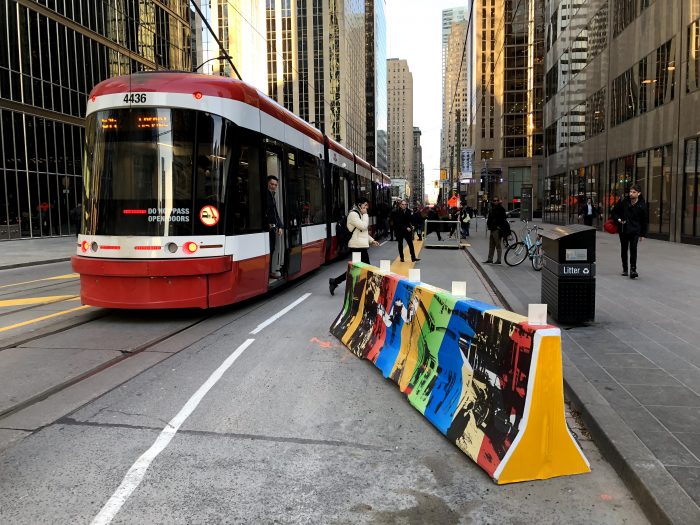One year after Toronto turned King Street in a transit- and walking-priority street, streetcar ridership, biking and walking are way up.
The project, which cost just $1.5 million, has produced an 11-percent increase in average daily ridership, and as much as 34 percent at peak hours. Once the street was closed to cars, about 20,000 additional streetcar riders materialized practically overnight, the city reports.
Biking, meanwhile, is up by as much as an astounding 440 percent, according to city estimates [PDF].
Before the pilot launched one year ago, King Street streetcar's 65,000 riders were mired in bumper-to-bumper traffic. “King St. wasn’t working for anyone,” Toronto Mayor John Tory said when the pilot was announced last summer.
Using painted jersey barriers and other low-cost materials, the pilot prohibited through car and truck traffic. The experiment shaved between four to seven minutes off evening commute times, saving riders about $11 million a year, according to a study by Ryerson University.
Local residents have been effusive about the improvements to transit trips.
It’s been a total game-changer for my commute; I used to be trapped underground, waiting on the over-stuffed and dangerous subway subway platforms, which frequently were delayed. Now I get to travel as fast or faster while enjoying the sights of my city on King! Love it!
— MattCampagna 🎬 (@mattcampagna) November 12, 2018
Toronto will decide before the end of the year whether to make it permanent. There remains, however, a certain amount of discontent among some business owners. Toronto reports business receipts are up along the corridor as well, albeit a tiny 0.3 percent. The rest of the city was up 3.8 percent over the same period.
The city has tried free parking and other incentives as concessions to businesses who have complained about declining car traffic.






